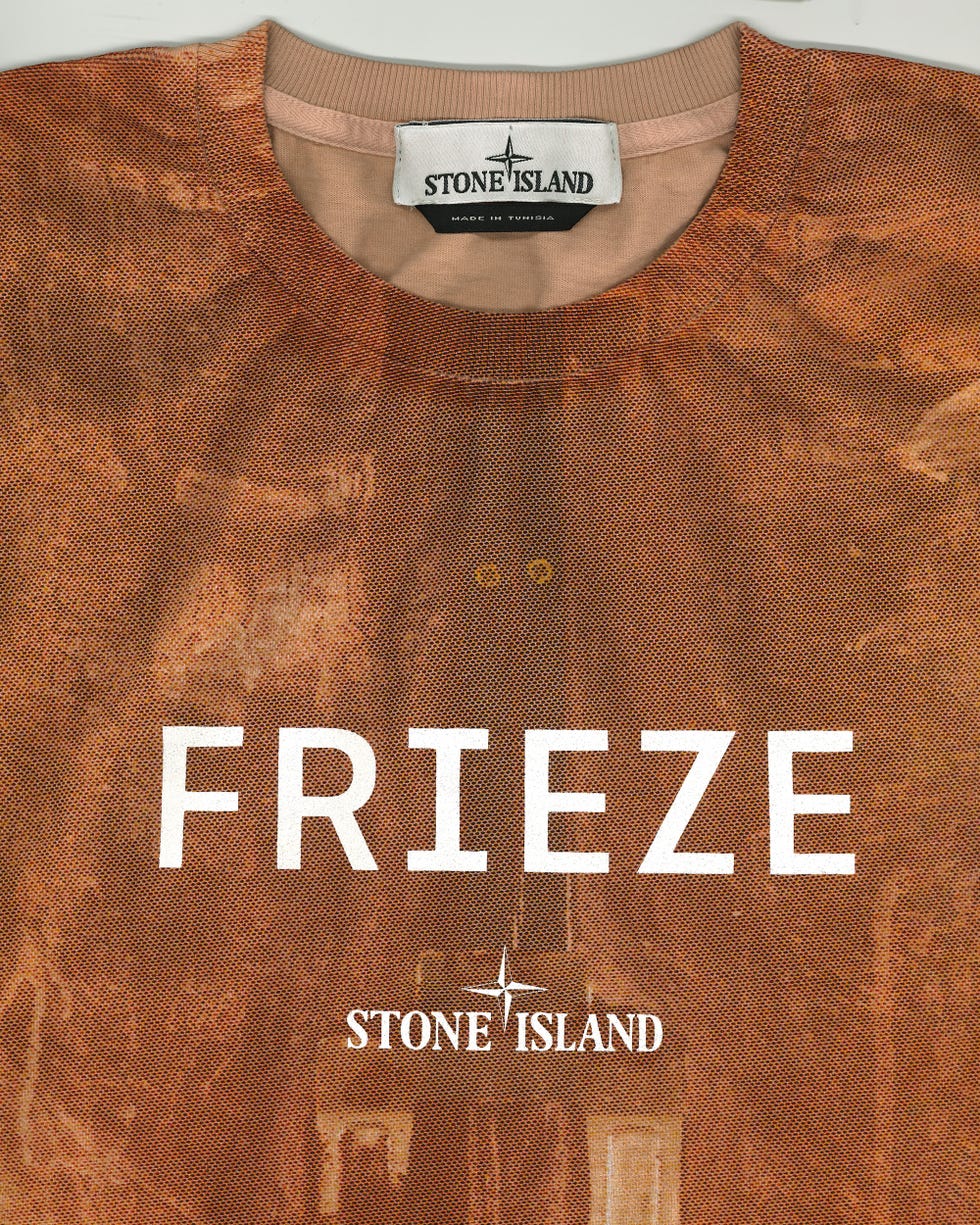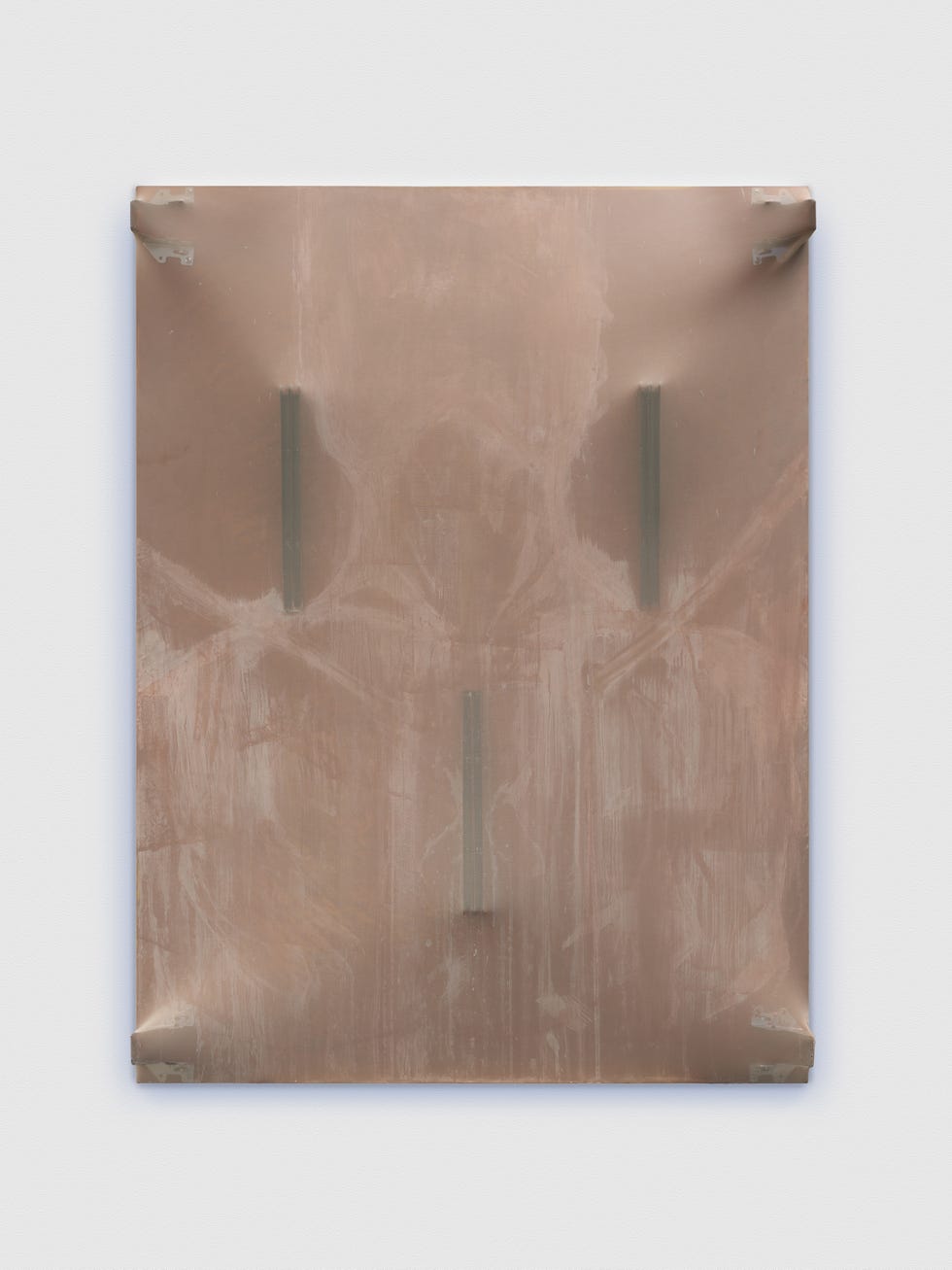How a Classic Esquire Cover Inspired Tahir Karmali’s Latest Art


Tahir Karmali has been thinking about Saint Sebastian recently. You might know the story. If not, the short version is that Sebastian was an early Christian saint and martyr, famously tied to a tree (or post) and shot with arrows after his religion was discovered. When that didn’t kill him, he was eventually clubbed to death. Even if his tale is unfamiliar, you’ve probably seen a painting of him.
“He’s sort of a trope in art,” Karmali explains. “There's often a depiction of Saint Sebastian as a martyr being tied to a pole, but it's always a very sexy man. It's always somebody stereotypically gorgeous. So Saint Sebastian appears in a lot of queer culture. Not only as the idea of being found, or anything like that, but just the fact that he is this attractive person, always kind of a little bit of feminine.”
Karmali was thinking about this as he prepared to show at the Frieze Art Fair in New York. He was part of the Frieze Focus section, which is supported by Stone Island, and lent his aesthetic perspective to a series of exclusive T-shirts for the fair. As an artist who focuses on textiles, he says working with a fashion brand renowned for its similar focus “felt natural.”

One of the shirts Karmali and Stone Island created for Frieze New York.
During his preparation, he decided to start researching Saint Sebastian more. Soon he discovered Muhammad Ali’s famous April, 1968 cover of Esquire, shot by photographer Carl Fischer and art directed by George Lois. It depicts the boxer as Saint Sebastian, clad in white satin shorts with six arrows piercing his torso and thigh.
“It just felt serendipitous,” Karmali says. The Nairobi-born, Brooklyn-based visual artist is recently sober, and credits boxing with helping him get there. He also wanted to focus on the idea of “uncomfort, discomfort” in his work for Frieze, creating large panels from textiles, gypsum, wood, and metal joists and then painting on top of that “these very dramatic images of bodies being slain or points of torture.”

Tahir Karmali; I’ll take you for everything you have, 2025; Nylon, wood, metal joists, iron oxide, polyurethane, blood, saliva, power mesh, gesso; 48 x 36 x 4 inches / 189.23 x 108.2 x 10.16 cm.
The image of Ali as Saint Sebastian aligned with all those themes. It felt compelling. “The idea of Saint Sebastian as a black man who was Catholic and then converted to Islam, that's very provocative,” he says. The chance to expose more people to that was something he believed was important.
But there is also something about the image—about the very idea of Saint Sebastian—that Karmali feels we need to hold onto right now, in this particular moment in history. “I was thinking about what martyrdom means today,” he explains, “and how people sacrifice things for their own community and how much we're going to have to be doing that in the future for our own communities—to sacrifice ourselves for a common good.”
esquire




